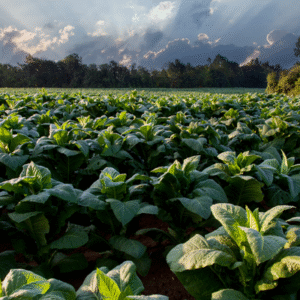In Mozambique, farmers from multiple districts across three northern provinces are actively participating in field day events designed to enhance their practical agricultural knowledge. These events aim to promote the adoption of new technologies and techniques that can significantly improve crop production and productivity.
Field days include hands-on training for men, women, and youth engaged in cultivating crops such as maize, sesame, cowpeas, sweet potatoes, soybeans, peanuts, and pigeon peas, as well as livestock and poultry farming. Participants are introduced to improved farming methods, climate-resilient seeds, disease identification in crops and animals, innovative agricultural technologies, and efficient harvesting techniques.
In Niassa province, where agricultural potential is high, the Accelerated Innovation Delivery Initiative (AID-I) led by IITA–CGIAR in collaboration with the International Potato Center (CIP) is working with sweet potato farmers. The project introduces improved varieties with better nutrition, shorter growing cycles, and higher economic returns, empowering communities through technological adoption.
CIP has also used these field days to foster interaction and knowledge-sharing among sweet potato farmers. By distributing seeds and demonstrating better planting methods, they help farmers evaluate multiple sweet potato varieties based on characteristics like leaf type, color, pulp, nutritional value, profitability, and flavor. Farmers can then choose the best options for their specific needs.
In Chimbunila, farmer Rita Ernesto shared her enthusiasm about learning new recipes, planting techniques, and crop disease management—all through hands-on activities during the field day. Her experience reflects the growing impact of these learning events on rural communities.
In Zambézia province, the Development Support Association (NANA) hosted a field day focused on the use of organic and inorganic fertilizers and their effect on maize cultivation. Students from Zambeze University led sessions, linking academic knowledge with community needs. Farmers observed firsthand the differences in crop quality and disease resistance due to various fertilizer applications.
Francisco João, a smallholder farmer, praised the field days for helping farmers apply and share new knowledge. He highlighted learning how to make community-based fertilizers as a key takeaway.
In Alto-Molócue district, organized by Agromiço, community members were trained on advanced maize cultivation methods, particularly in identifying and controlling pests and diseases throughout the crop cycle.
Meanwhile, in Nampula province, farmers learned about Aflasafe, a biological product used to prevent aflatoxin contamination in maize and groundnuts. Aflatoxins pose serious health risks, and using Aflasafe can enhance food safety, reduce postharvest losses, and improve market opportunities and income for farming families.
The field day brought together smallholder farmers, district officials, project partners, and private sector stakeholders to strengthen their understanding of Aflasafe use, along with proper harvesting and storage techniques to safeguard crop quality and boost profitability.
With the support of agricultural and livestock experts, farmers throughout these events have been guided in implementing climate-resilient methods aimed at sustaining productivity and securing their livelihoods.
Over a four-year period, the AID-I project coordinated by IITA and involving 16 partners, including the Mozambican government, plans to hold 240 field days. These will focus on demand-driven seed systems, advanced farm management tools, and integrated crop and nutrition support, reinforcing Mozambique’s path toward sustainable agricultural development.






